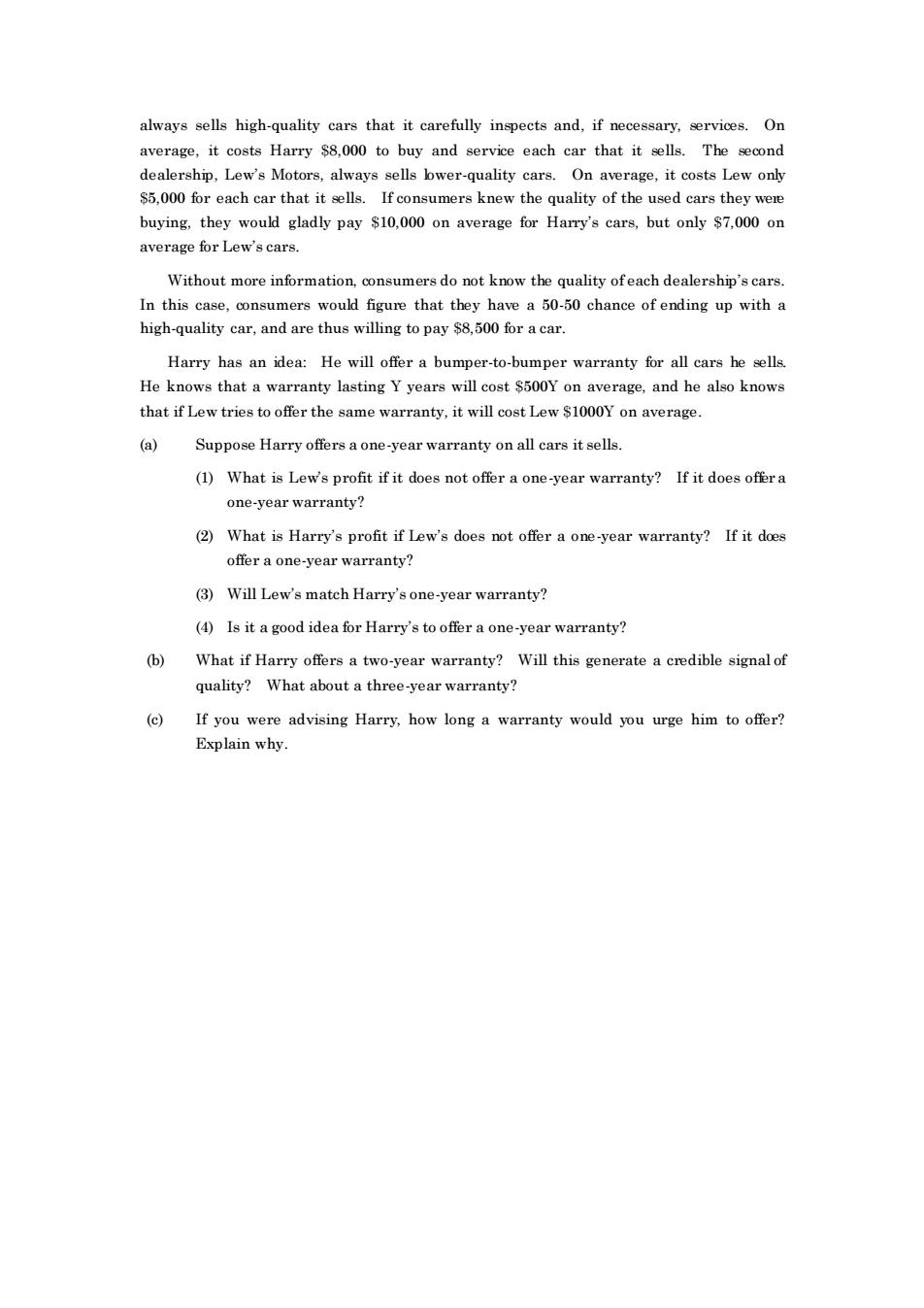正在加载图片...

always sells high-quality cars that it carefully inspects and,if necessary,services.On average,it Harry tobuyand erve ech ear that itll.The end dealership,Lews Motors,always sells bwer-quality cars.On average,it costs Lew on $5,000 for each car that it sells.If consumers knew the quality of the used cars they were buying.they would gladly pay $10.000 on average for Harry's cars,but only $7.000 on average for Lew's cars. Without more information consumers do not know the guality ofeach dealershin's cars In this e,cr that they h ve a 50-50 chance of ending up with a high-quality car,and are thus willing to a car. Harry has an idea:He will ofer a bumper-to-bumper warranty for all cars be sells He knows that a warranty lasting Y years will cost $500Y on average,and he also knows that if Lew tries to offer the same warranty,it will cost Lew $1000Y on average. (a) Suppose Harry offers a one-year warranty on all cars it sells (1)What is Lew's profit if it does not offer a one-year warranty?If it does offera one-vear warranty? (2)What is Harry's profit if Lew's does not offer a one-year warranty?If it does offer a one-year warranty? (3)Will Lew's match Harry's one-year warranty? (4)Is it a good idea for Harry's to offer a one-year warranty? ) What if Harry offers a two-year warranty?Will this generate a credible signalof quality?What about a three-year warranty? (c)If you were advising Harry,how long a warranty would you urge him to offer? Explain why.always sells high-quality cars that it carefully inspects and, if necessary, services. On average, it costs Harry $8,000 to buy and service each car that it sells. The second dealership, Lew’s Motors, always sells lower-quality cars. On average, it costs Lew only $5,000 for each car that it sells. If consumers knew the quality of the used cars they were buying, they would gladly pay $10,000 on average for Harry’s cars, but only $7,000 on average for Lew’s cars. Without more information, consumers do not know the quality of each dealership’s cars. In this case, consumers would figure that they have a 50-50 chance of ending up with a high-quality car, and are thus willing to pay $8,500 for a car. Harry has an idea: He will offer a bumper-to-bumper warranty for all cars he sells. He knows that a warranty lasting Y years will cost $500Y on average, and he also knows that if Lew tries to offer the same warranty, it will cost Lew $1000Y on average. (a) Suppose Harry offers a one-year warranty on all cars it sells. (1) What is Lew’s profit if it does not offer a one-year warranty? If it does offer a one-year warranty? (2) What is Harry’s profit if Lew’s does not offer a one-year warranty? If it does offer a one-year warranty? (3) Will Lew’s match Harry’s one-year warranty? (4) Is it a good idea for Harry’s to offer a one-year warranty? (b) What if Harry offers a two-year warranty? Will this generate a credible signal of quality? What about a three-year warranty? (c) If you were advising Harry, how long a warranty would you urge him to offer? Explain why